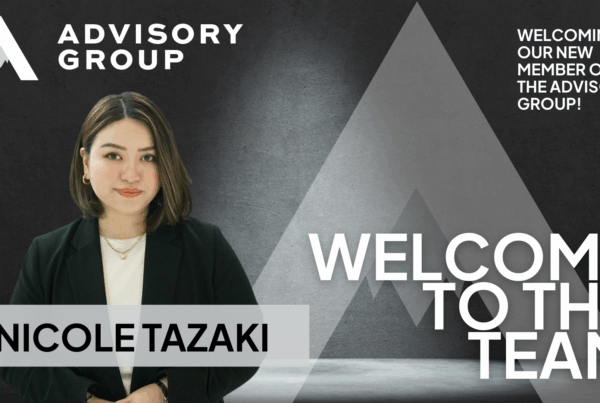Returning home after working abroad can be both exciting and overwhelming, especially when it comes to re-entering the job market. If you’re a Japanese candidate who has spent years honing your skills overseas, you might face a unique challenge known as “reverse culture shock.” It’s more than just adjusting to the daily life back in Japan; it’s about recalibrating your mindset to thrive in a familiar, yet different, work environment. Let’s look into some practical tips to help you navigate job hunting in Japan after working abroad.
What is Reverse Culture Shock in the Job Market?
Psychological Aspects of Returning Home
When you return to Japan, you might expect to feel relieved or even thrilled to be back. However, reverse culture shock often brings unexpected stress. You’ve grown accustomed to a different culture, lifestyle, and even a new way of thinking. Suddenly, what was once familiar in Japan may now feel foreign. This shift can impact how you approach job hunting, from networking to navigating interviews.
How It Impacts Your Professional Mindset
Working abroad exposes you to new challenges and responsibilities that broaden your professional mindset. While these experiences are valuable, they can make re-entry into the Japanese job market feel restrictive. Processes that once seemed straightforward, like formal interviews or hierarchical management structures, might now feel rigid compared to the more flexible environments you’ve grown used to. It’s crucial to understand these differences so you can mentally prepare for the transition.
Challenges of Re-entering the Japanese Job Market
The Competitive Nature of the Japanese Job Market
Japan is known for its highly competitive job market. Companies often look for candidates who fit within strict criteria, particularly when it comes to education and career trajectory. While your overseas experience sets you apart, it’s essential to remember that employers might view it differently. Being proactive in showcasing the benefits of your international experience will help you stand out.
Differences in Recruitment Processes Abroad vs. Japan
One of the most immediate hurdles you’ll face is adjusting to Japan’s unique recruitment practices. For instance, while overseas companies may emphasize flexibility, skill sets, and project achievements, Japanese employers tend to prioritize loyalty, long-term potential, and a clean career trajectory. Understanding these nuances will make it easier to position yourself correctly.
Adjusting to Japanese Work Culture
Key Cultural Differences to Anticipate
After working in a different cultural environment, Japanese work culture can seem more formal and structured. The emphasis on punctuality, formal attire, and company hierarchy is likely more pronounced than what you experienced abroad.
Navigating Japan’s Hierarchical Work Culture
Japanese workplaces often follow a strict hierarchy. You may need to adjust to addressing seniors with appropriate titles, using honorific language, and waiting for instructions from higher-ups. Even though you’ve grown in autonomy abroad, showing respect for Japan’s hierarchical system is key to your success.
Understanding the Importance of Group Harmony (“Wa”)
Japanese businesses place great importance on “wa,” or group harmony. Decision-making is often a group effort, and prioritizing team goals over individual achievements is essential. Be mindful of this as you reintegrate into the workplace, as it differs from more individualistic work cultures you may have encountered abroad.
Making Your International Experience Count
Highlighting Your Adaptability
Your time abroad has no doubt made you adaptable, an essential skill in Japan’s dynamic job market. Showcase how your ability to work in diverse environments has strengthened your problem-solving and critical thinking abilities. These traits will appeal to employers who value innovation and flexibility.
Showcasing Global Communication Skills
In a globalized economy, Japanese companies are increasingly looking for employees who can communicate effectively across cultures. Whether it’s language proficiency or simply an understanding of cultural nuances, your global communication skills can set you apart from other candidates.
Utilizing Cross-Cultural Problem-Solving Abilities
Japanese employers value candidates who can think globally and act locally. If you can demonstrate how you’ve used cross-cultural knowledge to solve problems in the past, you’ll have a competitive edge. Provide specific examples during interviews or in your CV that illustrate this.
Creating a Job Search Strategy
Networking with Former Colleagues and Mentors
Japan’s job market heavily relies on connections. Reach out to former colleagues, mentors, or even fellow returnees. Attending industry events or networking meetups can provide valuable leads and insights into current job market trends.
Refreshing Your CV for the Japanese Market
When updating your CV, make sure it aligns with Japanese preferences. Highlight your overseas experience but also emphasize how those skills translate to the Japanese work environment. Tailor your resume to showcase your growth and adaptability in both global and local contexts.
Utilizing Job Boards and Recruitment Agencies That Focus on Returnees
Many recruitment agencies in Japan specialize in helping returnees find jobs that match their unique skill sets. Leverage these resources, as they often have connections with companies that value international experience.
Acing Japanese Interviews After Working Abroad
Addressing Questions About Your Time Overseas
During interviews, you’ll likely be asked about your time abroad. Be prepared to answer why you chose to return and how your experiences overseas have shaped your career goals. Japanese employers are looking for candidates who can bridge the gap between international experience and local business needs.
Explaining How Your International Experience Aligns with the Company’s Needs
It’s crucial to demonstrate how your global perspective will benefit the company. Whether it’s handling international clients, managing diverse teams, or bringing innovative solutions, tie your experience back to the company’s goals and needs.
Top Industries for Returnees
Sectors That Value Global Perspectives
Industries such as technology, finance, and consulting are especially keen on hiring candidates with international experience. These sectors often require a global outlook to remain competitive, making your time abroad a valuable asset.
Popular Industries for Returning Japanese Professionals
Aside from tech and finance, industries like education, tourism, and retail are also eager to hire returnees. If your experience abroad aligns with these sectors, you’re likely to find roles where your skills are in high demand.
Overcoming Common Challenges for Returnees
Managing Expectations from Japanese Employers
While your overseas experience is a strength, managing expectations around it is essential. Some employers may have preconceived notions about returnees, such as concerns about your ability to adapt back to Japanese culture. Be proactive in addressing these during interviews.
Re-adjusting to the Pace and Structure of Japanese Workplaces
After working in potentially more relaxed environments, you might need to re-adjust to Japan’s faster pace and stricter organizational structure. While it might be a challenge at first, your adaptability will help you manage this transition smoothly.
Conclusion
Returning to Japan after working abroad presents unique challenges, but it’s also a valuable opportunity to leverage your international experience in the local job market. By understanding reverse culture shock, adapting to Japanese work culture, and strategically positioning your overseas skills, you’ll increase your chances of success. The key is to embrace both the challenges and opportunities that come with re-entering the workforce. Your global perspective can be a strong advantage, setting you apart from other candidates in a highly competitive market. Stay patient, persistent, and open to new possibilities as you work through this exciting new chapter in your career.



